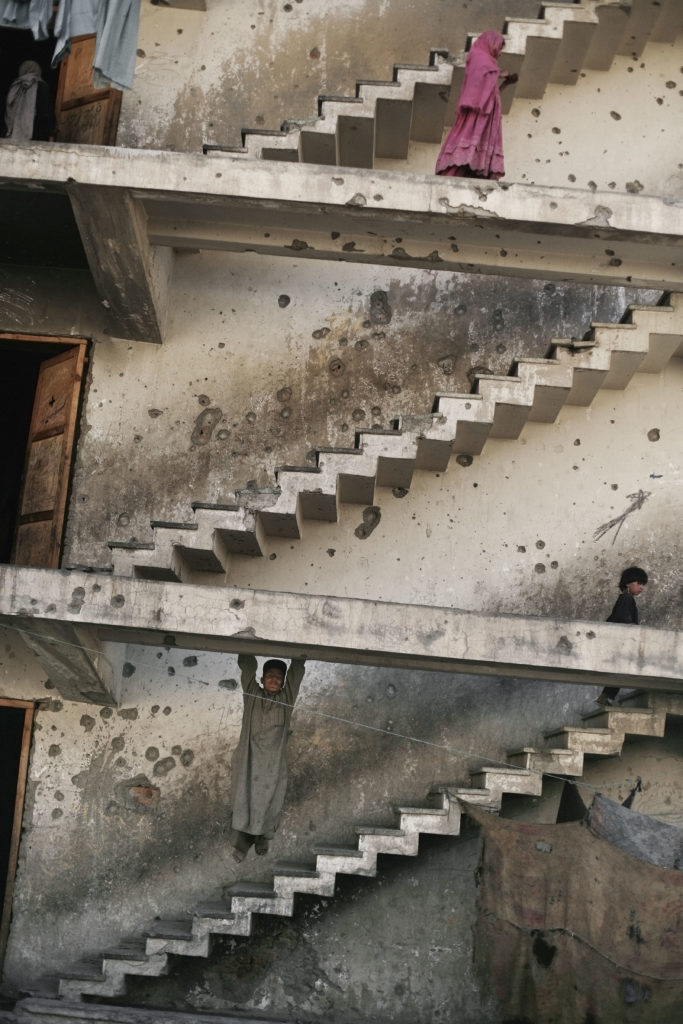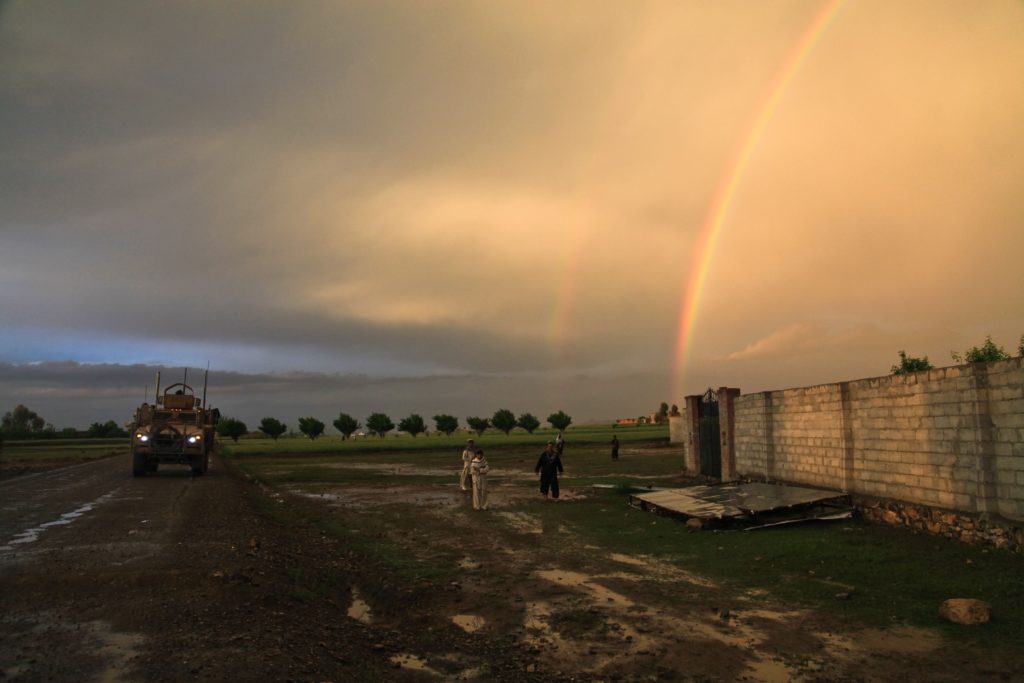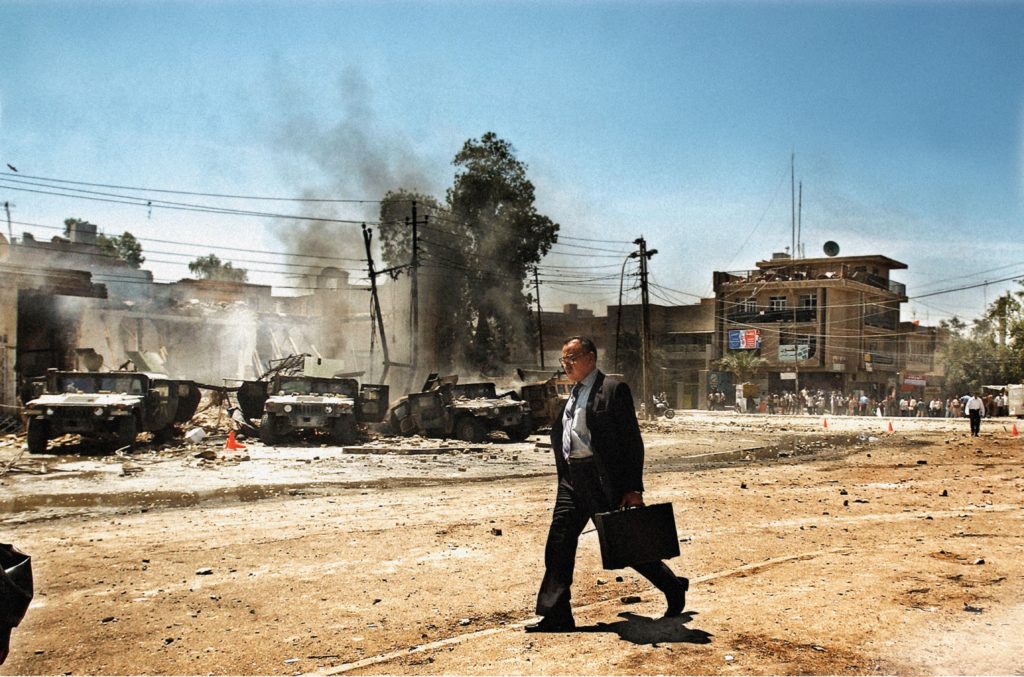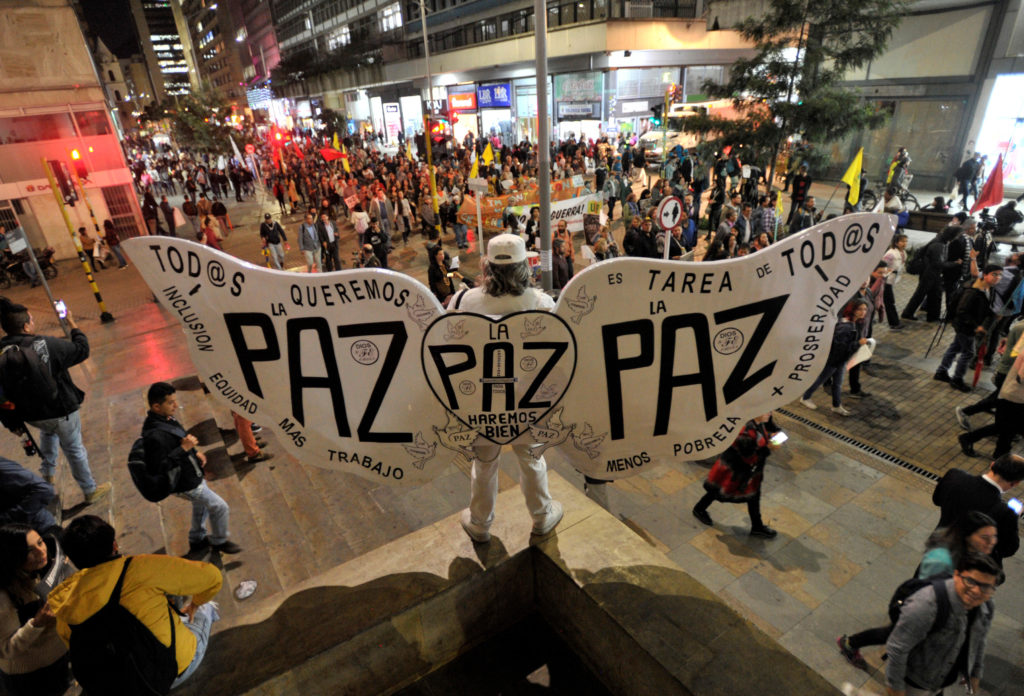Justin Kosslyn is a Product Direction Consultant, and was formerly the Director of Product Management for News Ecosystem at Google, spanning a set of products including Google Trends, Search Console, Reader Revenue Manager, Site Kit, Pinpoint, and R&D explorations with Generative AI.
He previously served as Head of Digital Products at TED, the organization behind TED Talks. Earlier in his career, he spent a decade at Google Jigsaw, where he oversaw a range of software tools to improve digital and information security. In addition to building and leading teams, he directly managed projects including Google’s warnings for targets of government-backed cyberattacks, and ClaimReview, a tool for global fact-checkers now used across most major tech platforms.
Justin graduated summa cum laude from Yale University with a BS in Computer Science, and lives with his wife and two children in NYC.
You may also be interested in
Rev. Dr. Samuel Kobia is the Chairman of Kenya’s National Cohesion and Integration Commission: a unique statutory body and institution to promote national identity and values; mitigate ethno-political competition and ethnically-motivated violence; eliminate discrimination on an ethnic, racial and religious basis; and promote national reconciliation and healing.
Previously, he served as Senior Advisor on Cohesion, Peace and Conflict Resolution in the Executive Office of the President and Cabinet Affairs of Kenya. From 2007-2018, he was Chancellor of St. Paul’s University. From 2011-2015, Dr. Kobia also served as a Commissioner in the Judicial Service Commission, which recruits Kenyan judges and oversees the judiciary. In addition, from 2010-2012, he served as Ecumenical Special Envoy for Sudan and South Sudan. He also served from 2004-2009 as General Secretary of the Geneva-based World Council of Churches, having been the General Secretary of the National Council of Churches of Kenya at an earlier stage in his career.
Dr. Kobia holds a Master degree in Urban Planning from MIT, a doctorate in International Relations from Geneva School of Diplomacy, and a doctorate in Theology from the Christian Theological Seminary. He is a visiting Professor to Wesley Colleges in USA and UK. He has previously held a fellowship at Harvard Divinity School and a visiting professorship at Cambridge University. He is the author of several books, including Dialogue Matters.
You may also be interested in
Adelaide Sosseh is an educator, gender specialist and human rights advocate. She recently served as the Deputy Chairperson of The Gambia’s Truth, Reconciliation and Reparations Commission (TRRC) set up by government to establish the historical record of human rights violations committed during the 22 years of the Jammeh regime, promote national reconciliation, and consider the granting of reparation to victims.
Mrs. Sosseh is a former Director of Schools (1990-1993) and had served in various roles in the education sector before rising to the position of Director under the restructured Ministry of Education. From there, she transited to Women’s Affairs and worked under the Office of the President as Project Manager of the multi-donor Women in Development Project (1993-1995).
Post government, Mrs. Sosseh became an active member of civil society and was appointed Executive Director of Worldview The Gambia, a communications development agency in 1999, a position she held until 2010. She also founded or chaired several civil society organisations at the national, regional and global levels, including the Education for all Campaign Network (EFANet), as founder and chairperson (2000-2010); the Pro-Poor Advocacy Group (Pro-PAG), as founder and chairperson (2000-2009); the National Human Rights Defenders, as founder and Secretary General (2000-2006); The Gambia Red Cross Society, as Member of the Executive Board (2004-2007); Amnesty International The Gambia, as member (2000-2005); and the Global Campaign against Poverty (GCAP), including as Global Co-Chair (2005-2010) and Ambassador (2010 to date).
Mrs. Sosseh has also served as the Executive Director of the GAM Africa Institute for Leadership (GAIL): an organisation focused on developing the leadership capacities of emerging youth leaders. At the regional level she served as a resource expert for the ECOWAS Gender Development Centre (EGDC) from 2005-2016, conducting gender training in all the ECOWAS countries and developing gender training manuals for the region. At the global level she served on the Global Advisory Committee for UN Girls Education (UNGEI GAC) and as a Representative of the Africa Campaign Network on Education for All (ANCEFA).
You may also be interested in
Ellen Friedman (she/her) is a social change strategist, organizer, philanthropic advisor, and network weaver. For eleven years she served as the Executive Director of the Compton Foundation, which seeks to ignite change toward a sustainable, just, and peaceful future. During Ellen’s tenure, the Foundation aligned its investment and grantmaking program with the Foundation’s mission and made the courageous decision to spend out the Foundation’s assets after 75 years of operation. Ellen served on the coordinating committee of the Divest/Invest Philanthropy campaign, was a member of the Steering Committee of Peace and Security Funders Group, and the Trust Based Philanthropy Project.
Prior to her tenure at Compton, Ellen served as the executive vice president of Tides where she worked for twenty-three years with individual donors and other social change activists. Previously, as a program officer, Ellen designed the Domestic Violence program at the Conrad N. Hilton Foundation and was an organizer on issues of gender-based violence for many years. She is a trustee of Rockwood Leadership Institute, the Tara Health Foundation and Criterion Institute. She is also a member of the Directors Circle of the Institute for Jewish Spirituality.
Ellen holds an MBA from UCLA, studies Jewish meditation and feminist spirituality, and leads the grief support team in her synagogue community in San Francisco. She is the proud mother of two remarkable humans and the partner of another.
You may also be interested in
Hilary Pennington is Ford Foundation’s executive vice president of programs. She oversees all of the foundation’s programs globally, working closely across programs and offices to ensure strategic, meaningful, and well-aligned global grant making. She also oversees the foundation’s BUILD program, and the Office of Strategy and Learning. Before assuming her current role, she served as the foundation’s vice president for Education, Creativity, and Free Expression.
A national expert on postsecondary education and intergenerational change, Hilary joined the foundation in 2013. Earlier, she was an independent consultant whose clients included the Next American University project of the New America Foundation and Arizona State University. She also led the Generations Initiative, a project funded by national foundations to develop effective responses to the dramatic demographic shifts occurring in the United States.
Between 2006 and 2012, Hilary served as director of education, postsecondary success, and special initiatives at the Bill and Melinda Gates Foundation, where she guided grant programs across the country and worldwide. Before joining Gates, she was a senior fellow at the Center for American Progress and president and CEO of Jobs for the Future, a research and policy development organization she co-founded. In 22 years with JFF, Hilary helped the organization become one of the most influential in the country on issues of education, youth transitions, workforce development, and future work requirements. She also served on President Bill Clinton’s transition team and as co-chair of his administration’s presidential advisory committee on technology.
Hilary serves on the boards of Bard College, the Center for Effective Philanthropy, and Giving Tuesday, and she is a member of the Trinity Church Vestry. She is a graduate of the Yale School of Management and Yale College, and she holds a graduate degree in social anthropology from Oxford University and a master’s degree in theological studies from the Episcopal Divinity School. In 2000, she was a fellow at Harvard’s Kennedy School of Government.
You may also be interested in
Shaharzad Akbar is the Executive Director of Rawadari and the former Chairperson of the Afghanistan Independent Human Rights Commission. Previously, she served as Deputy National Security Council on Peace and Civilian Protection as well as Senior Advisor to Afghan President on High Development Councils (August 2017 – August 2018) where she coordinated the prioritization of development projects and programs for executive decision-making. Prior to this, Shaharzad was Country Director for Open Society Afghanistan (September 2014 – July 2017), a non-profit that supports Afghan civil society and media in areas of peacebuilding, human rights and promoting tolerance. Before this, Shaharzad was partner and chief operating officer with QARA Consulting, a firm owned and run by young Afghans in Kabul which she co-founded in 2010; an analyst for the Free and Fair Elections Foundation; a journalist for BBC Afghanistan; and a research assistant on the Women of Courage book project. In 2012, she was the first elected chairperson for the Afghanistan 1400 movement.
Born in Jawzjan, Afghanistan in 1987, Shaharzad lived for a few years as refugee in Pakistan during the Taliban regime in Afghanistan. Shaharzad completed an MPhil at Oxford University as a Weidenfeld scholar in 2011; previously she obtained her BA (cum laude) in anthropology from Smith College in the U.S.
Shaharzad’s writing has appeared in international and Afghan media including Newsweek and Al Jazeera, and in academic journals. In 2017, she was selected by World Economic Forum as Young Global Leader.
You may also be interested in
Maria Livanos Cattaui was Secretary General of the International Chamber of Commerce from July 1996 to June 2005. She has championed the role of world business in the global economy and was instrumental in establishing a global partnership between business and the United Nations, leading to greater business input into UN economic activities.
Mrs. Cattaui worked with the World Economic Forum in Geneva from 1977 to 1996, where she became Managing Director, responsible for the celebrated Annual Meeting in Davos, building the public awareness it enjoys today.
She holds board and advisory board memberships on the EastWest Institute (New York), the International Crisis Group (Brussels), the Institute of International Education (New York), the National Bureau of Asian Research (NBR), the Schulich School of Business (York University, Toronto) and the Elliott School of International Affairs (George Washington University, Washington D.C.).
Mrs. Cattaui, who is of Swiss nationality and Greek origin, was educated in the United States. She is an honours graduate of Harvard University. She holds an honorary Doctor of Laws degree from York University, Toronto.
You may also be interested in
Jennifer Widner is Professor of Politics and International Affairs and Director of Innovations for Successful Societies, a Woodrow Wilson School research program on improving government performance. Before joining Princeton, she taught at Harvard and the University of Michigan. Her current research focuses on the political economy of institutional reform, government accountability and service delivery. She also remains interested in constitution writing, constitutional design and fair dealing—topics of earlier research. She is the author of Building the Rule of Law (W. W. Norton), a study of courts and law in Africa, and she has published articles on a variety of topics in Democratization, Comparative Politics, Comparative Political Studies, Journal of Development Studies, The William & Mary Law Review, Daedalus, the American Journal of International Law and other publications. She is currently completing work on a book about making government work in challenging settings, drawing on experiences in Africa, Asia and parts of Latin America.
Jennifer received her PhD from Yale University.
You may also be interested in
Oscar Vilhena Vieira is the Dean of the School of Law at São Paulo of the Getulio Vargas Foundation (FGV Direito SP), where he teaches Constitutional Law, Human Rights, and Law and Development. He has a B.A. in law from the Catholic University of Sao Paulo, an LL.M. from Columbia University in New York, an M.A. and Ph.D. in political science from the University of São Paulo, and completed his post-doctoral studies at St. Antony’s College at Oxford University.
He served as state attorney for São Paulo, was executive secretary of the United Nations Latin American Institute in Brazil, executive secretary of the Teotonio Vilela Commission for Human Rights, and legal adviser for the Center for the Studies of Violence of the University of São Paulo. He participated in the board of Open Society Foundation’s Human Rights Initiatives, and the board of Ethos Institute. He also was a founding member of Conectas Human Rights, Pro Bono Institute and former president of Law Schools Global League (LSGL). He has also been a Global Fellow at the Brazil Institute of the Woodrow Wilson International Center for Scholars and founding members of the Arns Commission for Human Rights.
Oscar Vilhena Vieira has written several books and academic articles on constitutional law, human rights, law and development. He is a columnist at one of the most important newspapers in Brazil – the Folha de São Paulo – and an active pro bono lawyer in several human rights cases.
You may also be interested in
Rafael Vilasanjuan is the Policy and Global Development Director of ISGlobal, a major institute that addresses urgent challenges in global health. He has a long and distinguished career in international humanitarian and development issues.
Mr Vilasanjuan worked for over 12 years with Médecins Sans Frontières (MSF), starting as Communication Director in 1995 and later as General Director of the Spanish section of MSF. In 1999, when the organisation was awarded the Nobel Peace Prize, he was appointed General Secretary of MSF International, a position he held until 2005. During this period, he worked in conflict zones such as Rwanda, Afghanistan, Chechnya, Somalia, Sudan, West Africa, the Democratic Republic of Congo and Colombia. As General Secretary of MSF, between 2002 and 2004 he was the chair of the Steering Committee for Humanitarian Response, representing the largest international humanitarian organisations before the UN. He was a founding member of the Drugs for Neglected Diseases Initiative (DNDi), which develops and delivers new drugs for diseases in developing countries – an organisation in which he still collaborates.
Mr Vilasanjuan is a professional journalist with a degree in information sciences. He has a weekly opinion column on international affairs in El Periódico and contributes weekly as a political affairs analyst on the news programme of Cadena SER, the leading radio station in Spain.









